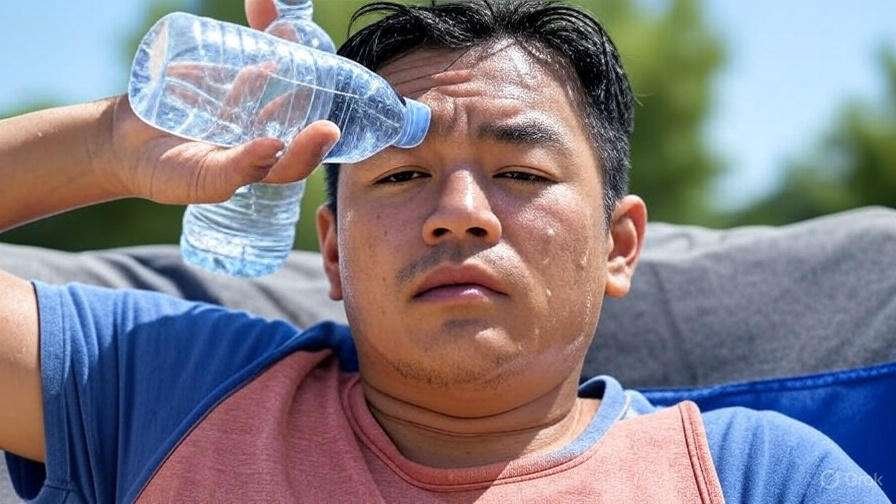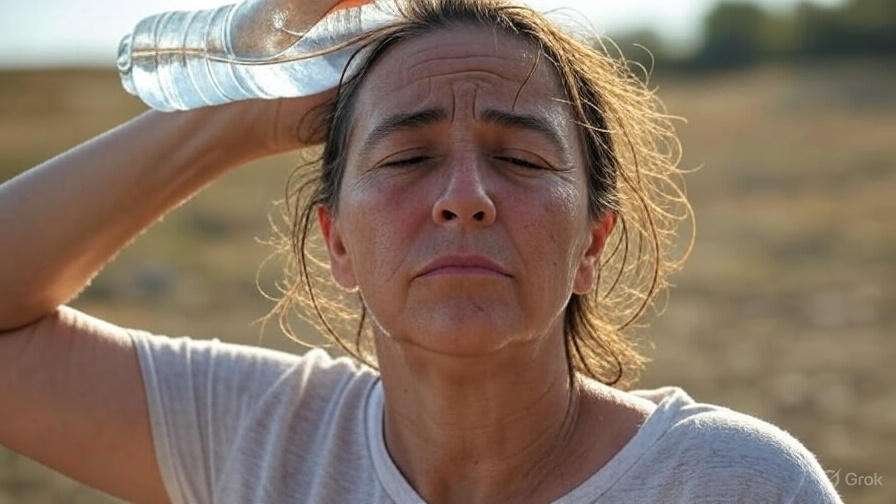Top Signs of Dehydration are often overlooked, but missing them can put your health at serious risk. Your body is nearly 60% water, and even a small drop in fluid levels can trigger fatigue, headaches, and confusion. Ignoring these signals may lead to severe complications like kidney problems, heatstroke, or even hospitalization.

Why Dehydration Is More Dangerous Than You Think
Dehydration happens when your body loses more fluids than it takes in. While it may sound like a minor issue, it can quickly become life-threatening if not addressed. According to the Mayo Clinic, dehydration is especially risky for young children, older adults, and people with chronic illnesses.
That’s why understanding the top signs of dehydration can literally save your life.
Top Signs of Dehydration You Must Watch For
1. Persistent Thirst
Feeling thirsty is the most obvious red flag. If you constantly feel the need to drink water, your body is already dehydrated.
2. Dark Yellow or Strong-Smelling Urine
Healthy urine is pale yellow. Dark urine or a strong odor signals dehydration.
3. Fatigue and Dizziness
When the body lacks water, blood volume decreases, leading to lower energy and lightheadedness.
4. Dry Mouth and Cracked Lips
Saliva production drops when dehydrated, leaving your mouth dry and uncomfortable.
5. Headaches and Poor Concentration
Mild dehydration often causes headaches and reduces mental sharpness.
6. Muscle Cramps
Lack of fluids and electrolytes can trigger painful cramps during physical activity.
7. Dry Skin and Reduced Sweating
Your skin may lose elasticity, and your body may sweat less, raising body temperature dangerously.
Severe Warning Signs of Dehydration
- If left untreated, mild symptoms can escalate to serious conditions. Seek immediate medical help if you experience:
- Rapid heartbeat
- Confusion or irritability
- Fainting
- Little to no urination
- These are emergency signs that your body is severely dehydrated.
How to Prevent Dehydration
The good news? Prevention is simple:
- Drink at least 8 glasses (2 liters) of water daily.
- Increase fluids in hot weather or during exercise.
- Eat water-rich foods like cucumber, watermelon, and oranges.
- Limit alcohol and caffeine, which can worsen dehydration.
For more hydration tips, check our guide: Why Drinking Enough Water Might Be Your Best Health Decision.
Conclusion: Listen to Your Body’s Warnings
The top signs of dehydration are your body’s SOS signals. From headaches to dark urine, each symptom is a reminder to refill your glass. Staying hydrated is one of the simplest, yet most powerful ways to protect your health.
So next time you feel unusually tired, dizzy, or thirsty—don’t ignore it. Drink up before dehydration takes a toll on your well-being.



